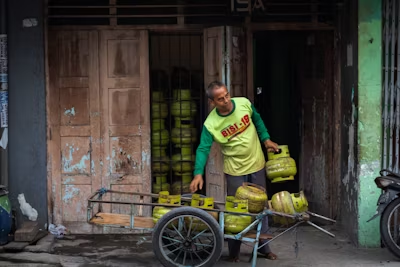
BP has reached a significant milestone by making a final investment decision (FID) for the Tangguh Ubadari, CCUS (Carbon Capture, Utilization, and Storage) project in Indonesia. This decision marks a major step towards reducing greenhouse gas emissions and advancing the global energy transition.
The project, which is expected to unlock approximately 3 trillion cubic feet of additional gas resources, involves extending the gas feed to BP’s existing Tangguh LNG facility through the development of the Ubadari gas field. The project is scheduled to commence production in 2028.
Once completed, the Tangguh EGR/CCUS project will feature three injection wells, an offshore injection platform, and onshore facilities for CO2 removal, processing, and compression. The initial phase of the project aims to sequester around 15 million tonnes of CO2, with the potential for further expansion given the region’s significant CO2 storage capacity.
“This project not only unlocks a fantastic gas resource,it also represents an Indonesian first through the use of CCUS to maximise gas recovery. BP has operated in Indonesia for more than fifty-five years, and the strength of our relationships enables us to bring deep technical experience in helping to deliver this innovative development. We deeply appreciate the continued support of the Government of Indonesia and partners and look forward to helping the region meet its growing energy needs,” said BP’s CEO.
The Tangguh LNG project, located in Bintuni Bay, Papua Barat Province, has been a major contributor to Indonesia’s energy landscape. With the addition of the third LNG train in 2023, the plant’s total liquefaction capacity has reached 11.4 million tonnes per year.
By investing in projects like Tangguh Ubadari CCUS, BP is demonstrating its leadership in the energy transition and its commitment to a sustainable future.
Swanwick House, 22 Towcester Road, Old Stratford, Milton Keynes, MK19 6AQ, UK
© 2025 Project Management Global. All rights reserved | Privacy Policy